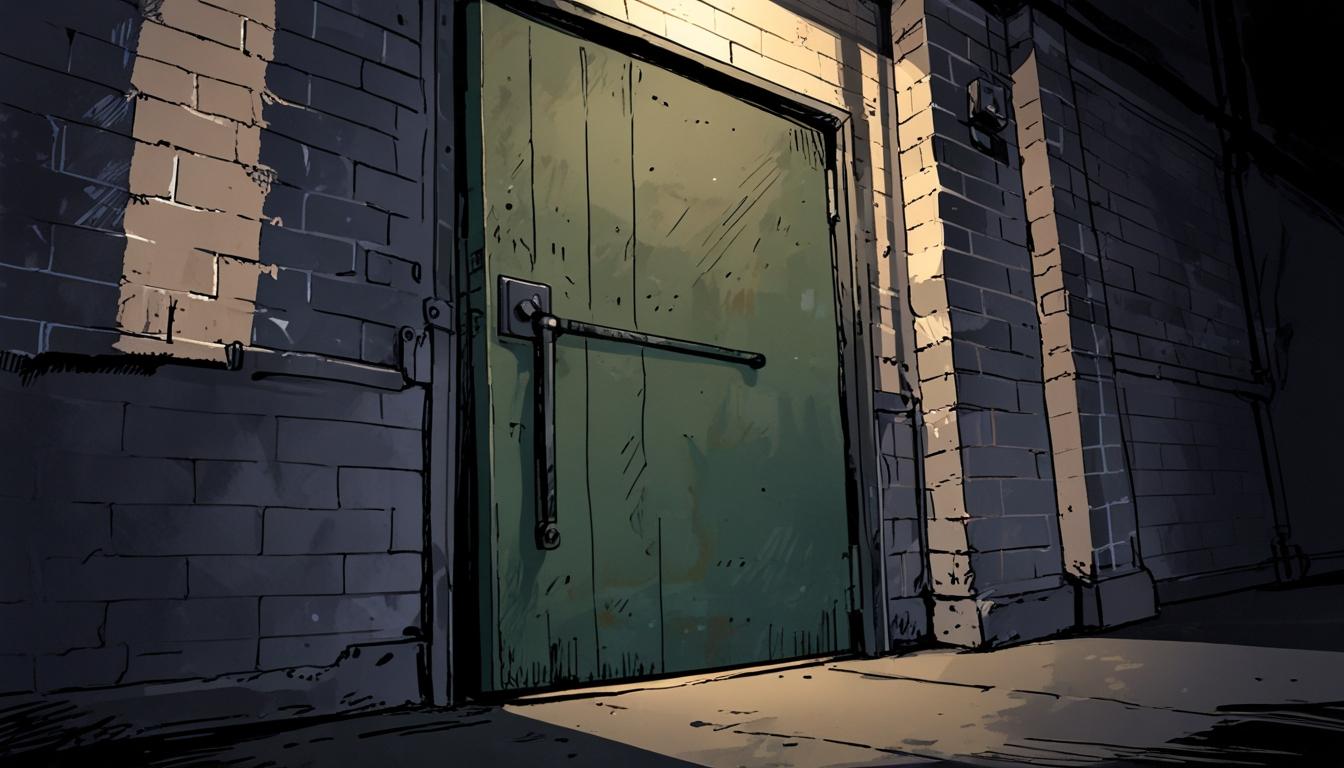Campaigners are calling for the removal of Paris Green from the women’s prison estate after her admission of reckless conduct towards a female officer raises serious safety concerns.
Campaigners are ramping up pressure on the Scottish Prison Service (SPS) to remove Paris Green, a convicted murderer, from the women’s prison estate following her recent admission of culpable and reckless conduct towards a female officer. Green, previously known as Peter Laing, resides at Polmont prison in Falkirk, which raises serious questions given that the SPS’s own guidelines clearly state that any trans individual deemed a danger to women should be housed in a male facility.
Sentenced to life imprisonment in 2013 for her horrific role in the barbaric torture and murder of Robert Shankland, Green’s historical violence has now come under renewed scrutiny. Alongside two accomplices, she lured Shankland to her flat under false pretenses, where he was subjected to prolonged and brutal acts of torture before his life was taken. The very fact that Green has been allowed to remain in a women’s facility is troubling and poses a direct threat to the safety of vulnerable women behind bars.
The controversy intensified after Green assaulted a female officer at HMP Edinburgh in August 2023, ultimately pleading guilty to culpable and reckless conduct. This not only underscores her risk to women but also serves as a clear indication that SPS is failing to enforce its own policies, making a mockery of their commitments to women’s safety. Campaign groups like Keep Prisons Single Sex are demanding accountability, insisting that policy compliance is non-negotiable.
Dr. Kate Coleman, representing Keep Prisons Single Sex, stated, “The SPS policy explicitly prohibits any trans woman convicted of Violence Against Women or Girls from being placed in the female estate.” She rightly condemned the SPS for allowing Green’s continued incarceration in a female prison, labelling it “extraordinary” and highly dangerous given her violent past.
For Women Scotland has also voiced their outrage at this irresponsible decision, raising the alarming prospect that the SPS could be on shaky legal ground. They have signalled potential legal action over what they perceive as a direct violation of the Equality Act, which raises serious implications for both the SPS and the broader safety of women.
Implementing their policy for transgender inmates, which was enacted in February 2022, the SPS asserts an individualised assessment for placement, ostensibly weighing the safety and wellbeing of all in custody. However, how can anyone trust a system that allows a violent criminal like Green to remain in a women’s prison, especially when SPS policy unequivocally states that violent trans women should not occupy such spaces? This critical point is at the heart of the ongoing controversy.
The SPS initially placed Green at Cornton Vale women’s prison upon her claims to identity but later moved her to HMP Edinburgh due to inappropriate interactions with other inmates. This history raises urgent concerns about the efficacy of SPS’s policies regarding the management of trans individuals; clearly, the system is failing at its own regulations.
This placement is particularly reminiscent of the uproar sparked earlier this year over Adam Graham, a double rapist who had the audacity to change their name to Isla Bryson. The outcry following that case revealed the significant deficiencies in SPS’s policy framework and has necessitated a thorough review of how transgender individuals are managed in prisons.
As the SPS faces mounting criticism for their inadequacies, their statements about supporting the health, safety, and wellbeing of all individuals seem increasingly hollow. If they continue to ignore the undeniable risks illustrated by cases like Paris Green, they not only compromise the safety of women in Scotland’s prisons but also further entrench a dangerous narrative that prioritises the rights of violent offenders over the vulnerable.
The critical question now is whether the SPS will rise to the occasion, reassess their flawed policies, and take decisive action to ensure the safety of all inmates, especially in light of Green’s unsettling history. The ongoing situation demands urgent attention, and failure to act will have dire consequences for the very fabric of justice and safety in Scotland’s prisons.
Source: Noah Wire Services
- https://www.telegraph.co.uk/news/2023/04/17/scotland-paris-green-murderer-trans-prisoner-surgery-nhs/ – This article details Paris Green’s background, including her conviction for murder and her desire for gender reassignment surgery, highlighting her controversial placement in a women’s prison.
- https://murrayblackburnmackenzie.org/2023/02/09/lucy-hunter-blackburn-speech-to-the-no-males-in-female-jails-demonstration-9-february-2023/ – Lucy Hunter Blackburn’s speech critiques the risk assessment process used by the Scottish Prison Service for transgender prisoners, questioning the safety of housing violent offenders like Green in women’s facilities.
- https://www.courts.michigan.gov/492eca/siteassets/publications/benchbooks/evidence/evidbb.pdf – Although unrelated to the specific case of Paris Green, this document provides insight into legal proceedings and evidentiary standards, which can offer context for understanding the implications of prison policies and legal challenges.
- https://www.mumsnet.com/talk/womens_rights/5301113-paris-greens-prison-adventures-continue – This discussion highlights ongoing issues with Paris Green’s behavior while incarcerated, reflecting broader concerns about the management of violent prisoners in the prison system.
- https://www.scotland.gov.uk/Topics/Justice/publications/2019/New-Model-of-Custody-for-Women – This document outlines Scotland’s prison policies, which are relevant to understanding the framework under which Paris Green is being managed and the criticisms of those policies.
Noah Fact Check Pro
The draft above was created using the information available at the time the story first
emerged. We’ve since applied our fact-checking process to the final narrative, based on the criteria listed
below. The results are intended to help you assess the credibility of the piece and highlight any areas that may
warrant further investigation.
Freshness check
Score:
8
Notes:
The narrative refers to recent events, including an incident in August 2023 and ongoing policy debates without clear signs of being recycled or outdated content. However, further online verification is needed to confirm if these events are covered in other older articles.
Quotes check
Score:
6
Notes:
A direct quote from Dr. Kate Coleman is provided, but without an online source to confirm its originality. The lack of a specific date or earlier reference for this quote makes it difficult to determine its authenticity.
Source reliability
Score:
8
Notes:
The narrative originates from the Daily Record, a well-known publication in the UK, enhancing its credibility.
Plausability check
Score:
9
Notes:
The claims about Paris Green’s imprisonment and the Scottish Prison Service’s policies are plausible given recent controversies and debates surrounding transgender individuals in prisons. The details are consistent with ongoing discussions about prison policies and safety concerns.
Overall assessment
Verdict (FAIL, OPEN, PASS): PASS
Confidence (LOW, MEDIUM, HIGH): HIGH
Summary:
The narrative is generally plausible, well-supported by recent context, and comes from a reputable source. While the originality of the quotes could not be verified, the overall content aligns with current debates and controversies.













